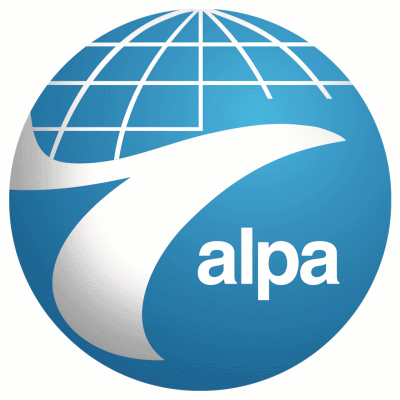Wed, Aug 17, 2016
Many U.S. Regional Airlines Still Offer First-Year Salaries Below $30,000
New starting pilot salary data from regional airlines released by the Air Line Pilots Association, Int’l (ALPA) show that while salaries are rising modestly, many U.S. regional airlines still offer unacceptably low first-year pilot pay and are resisting the long-term contract improvements necessary to attract qualified candidates.

“While first-year salaries for pilots at regional airlines are moving in the right direction, new pilots are looking for a long-term career with growth and good quality of life,” said Capt. Tim Canoll, ALPA’s president.
Some low-paying regional airlines are attempting to lure new pilots with one-off signing bonuses, but ALPA maintains that such single-time offers are gimmicks that won’t distract qualified individuals from the fact that contracts at many of these airlines don’t provide the pay, health-care benefits, quality of life, and job growth that their current and new pilots seek.
At the same time, other regional airlines have acknowledged the important role that contract improvements and career progression play in attracting qualified candidates and are incorporating career-advancement programs that will positively influence the long-term availability of qualified pilots in the U.S. airline industry.
“Over the past two years, a few regional airlines have begun taking the positive steps in improving pilot contracts and creating the career-advancement avenues that ALPA has sought for years,” said Canoll. “As a result, these regional airlines will have an increased ability to recruit and retain qualified pilots, but much more needs to be done.”
FAA statistics make it clear that thousands of individuals currently hold the airline transport pilot (ATP) certificate necessary to become an airline pilot in the United States, and many more obtain them every month. While there were approximately 76,000 airline pilot jobs in 2015, FAA data show that, as of January 2016, a total of 141,542 currently active pilots under age 65 hold an ATP and first-class medical certificate. Another 100,000 pilots hold instrument ratings and commercial certificates and could obtain ATPs or restricted airline transport pilot certificates.
(Source: ALPA news release)
More News
Sikorsky UH-60 Black Hawk Helicopter Collided With An Unregistered DJI Mavic 3T Unmanned Aerial Vehicle On July 7, 2025, about 1557 central daylight time, an unregistered Sikorsky >[...]
“After considering the measures taken, minimum liquidity covenants in the Company's current debt obligations and cash flows to maintain current operational obligations requir>[...]
Ground Clutter A pattern produced on the radar scope by ground returns which may degrade other radar returns in the affected area. The effect of ground clutter is minimized by the >[...]
Aero Linx: Warbirds of America The EAA Warbirds of America, a division of the Experimental Aircraft Association in Oshkosh, Wisconsin, is a family of owners, pilots and enthusiasts>[...]
Also: Louisville UPS Crash Aftermath, Taiwan Boosts Pilot Pool, Spartan Acquires, DON’T MISS the MOSAIC Town Hall! This three-day Affordable Flying Expo brings together indoo>[...]
 NTSB Prelim: Sikorsky UH60 Sikorsky UH-60
NTSB Prelim: Sikorsky UH60 Sikorsky UH-60 Aero-News: Quote of the Day (11.13.25)
Aero-News: Quote of the Day (11.13.25) ANN's Daily Aero-Term (11.13.25): Ground Clutter
ANN's Daily Aero-Term (11.13.25): Ground Clutter ANN's Daily Aero-Linx (11.13.25)
ANN's Daily Aero-Linx (11.13.25) Airborne 11.07.25: Affordable Expo Starts!, Duffy Worries, Isaacman!
Airborne 11.07.25: Affordable Expo Starts!, Duffy Worries, Isaacman!



